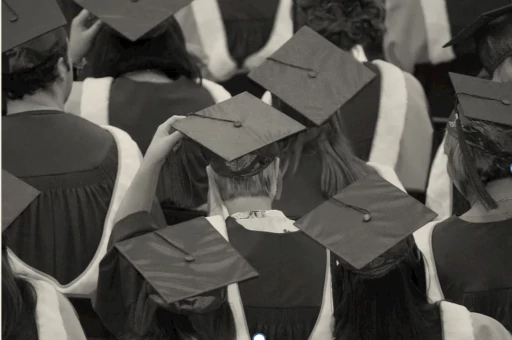
In our top ethics story this week, Harvard Professor Meira Levin advocates for the establishment of a dedicated profession of educational ethicists. In the WEO’s view, this has potential value in fostering ethical awareness, dialogue, and informed decision-making within the realm of education. Education is not merely about imparting knowledge; it involves navigating a complex landscape of moral dilemmas that educators, policymakers, and administrators encounter regularly. The need for a structured framework, similar to the field of bioethics in medicine, becomes evident in addressing the ethical challenges inherent in the educational domain.
Educational ethicists would serve as guides, consultants, and theorists, playing a crucial role in defining the ethical parameters of educational practices. In a society where the importance of education is paramount, having experts dedicated to unraveling ethical quandaries ensures a thoughtful and principled approach to decision-making. The parallel with bioethicists is striking – just as bioethics informs medical professionals and policymakers during health crises, educational ethicists could provide invaluable insights during educational challenges.
Moreover, educational ethicists would contribute to closing the gap between scholarly research on ethical questions in education and the practical needs of educators and policymakers. Their expertise could be sought in various contexts, from formulating inclusive policies addressing gender diversity to navigating controversial issues like freedom of speech in classrooms. In essence, these ethicists would be champions of ethical literacy, facilitating open conversations and promoting a culture of ethical reflection within educational institutions.
The ultimate vision is for educational ethicists to serve as ethical consultants, aiding decision-makers in matters ranging from school policies to teacher hiring practices. By fostering collaboration and providing ethical guidance, this profession would contribute significantly to creating an educational environment that prioritizes the well-being of students, educators, and the broader community.
The classroom can be an ethical minefield
Meira Levinson, Juliana W. and William Foss Thompson Professor of Education and Society, advocates for the establishment of educational ethics, akin to bioethics in medicine. Levinson underscores the constant ethical challenges faced by educators and the need for a framework to navigate these dilemmas openly. Reflecting on perennial and evolving ethical issues, she emphasizes the importance of inclusive practices amid gender diversity concerns. Levinson envisions educational ethicists playing a role similar to bioethicists, providing guidance, consultations, and ethical parameters for policymakers and educators dealing with complex issues, ultimately benefiting students, educators, and the community as a whole.
Ethics complaint against federal judge who ruled in Jan. 6, Trump cases
Rep. Elise Stefanik (R-N.Y.) has called for an ethics investigation into U.S. District Judge Beryl Howell, who is overseeing Rudy Giuliani’s defamation trial and has ruled on cases related to the Jan. 6 riot and Trump. Stefanik alleges “judicial misconduct” over Howell’s speech, criticizing it as a “highly inappropriate political speech” discussing “big lies” and authoritarianism without naming Trump. Stefanik claims a link to Trump’s 2024 campaign. Howell previously oversaw the grand jury in Trump’s 2020 election subversion case. Stefanik has also targeted Judge Arthur Engoron, overseeing Trump’s NY civil fraud trial, with an ethics complaint for alleged bias.
The difference between ethics and morality
For those who enjoy a long and thoughtful read, The Collector’s Viktoriya Sus explores the nuances of ethics and morality through the lens of two great philosophers. Morality, a cornerstone of human values, shapes behavior and relationships, with ethical theories providing a philosophical framework. While morality is subjective, influenced by religion, culture, and personal beliefs, ethics delves into universal principles guiding conduct. Immanuel Kant’s “ethics of duty” emphasizes rationalism and obliges moral actions solely from a sense of duty, while Arthur Schopenhauer questions this perspective. Georg Wilhelm Friedrich Hegel integrates morality into evolving societal contexts, viewing it holistically. Morality, as depicted by these philosophers, is a dynamic concept, evolving with changing contexts, guiding thought and action, and fostering positive behavioral changes and social harmony.
How the Tech Industry Prioritizes Innovation, Progress and Profit Above Ethical Considerations
Note: This article requires a (free) Medium account. The tech industry faces a growing unease over its prioritization of innovation and profit over ethical considerations. The relentless pursuit of growth has bred a culture of hubris, dismissing potential harm to users, workers, and the environment. The industry’s obsession with speed and scale often neglects responsible development, leading to unforeseen risks. Discrimination and a lack of diversity in tech perpetuate systemic biases in algorithms, impacting marginalized communities. It’s crucial to unveil the callousness behind the industry’s drive for disruption and demand accountability and transparency. The narrative of progress should not shield the ethical lapses that tarnish the tech sector’s image.
Ethics critic calls for Canadian Conservative leader to appear before House ethics committee
In Canada, New Democrat ethics critic Matthew Green calls for Conservative House Leader Andrew Scheer to appear before Parliament’s ethics committee for filming a partisan video in his Parliament Hill office, breaking House rules. Green deems Scheer’s endorsement video a hypocritical transgression, emphasizing the lack of integrity in Conservative leadership. Scheer was previously fined $500 for the violation. Green advocates for tougher ethics fines, proposing suspensions as in the U.K. for partisan resource use. Scheer, who led calls for Speaker Greg Fergus’s resignation over a partisan video, draws parallels with Prime Minister Justin Trudeau’s past actions. Parliament’s ethics committee is expected to address Green’s motion in late January.
